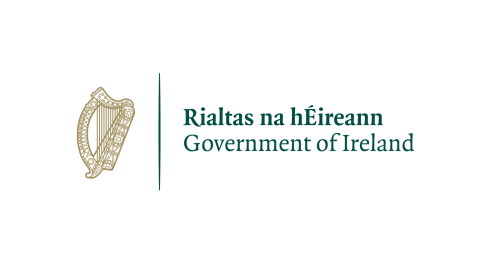
The Digital Academy for the Sustainable Built Environment (DASBE) project conducted a desk- based horizon scanning study in 2021 across its three primary areas of focus, Energy Efficiency, Circular Economy and Digitalisation. The study is the first stage in a wider strategy designed to ascertain a detailed understanding of the range of training and education needs across the construction sector in Ireland.
The wider strategy includes carrying out sectoral surveys and hosting stakeholder workshops as well as working with national (e.g., the Build Digital Project) and international R&D projects that have shared or mutual interests in identifying the Irish construction sector industry needs landscape.
Following on from the initial report which was issued in February 2022 we will review the status of the three main pillars, Digital Skills, Circular Economy and Energy Efficiency and note progress made in these pillars.
The DASBE Horizon Scanning process will be carried out annually to ensure that the DASBE project stays up to date and is capable of responding to sectoral training and education needs in a timely and efficient manner.
Comprehensive reports were completed on each of three areas with TUS Midwest taking the lead on the Energy Efficiency Theme, ATU on the Circular Economy and TUS Midlands on Digitalisation.
While each Partner will remain as discussed above there is a common thread emerging across the Pillars, that is the Digital Competencies within each Pillar. The reports remain as set out on each pillar but there will be an extra focus on the Digital aspect for year three of the Project.
The reports provide an overview of the current national and international policies that are guiding the construction industry in Ireland. They also provide information on current construction programme provision as well as insights into current industry needs. The report identifies several cross-cutting themes which have significant impacts in each of the three areas of interest.
In addition to identifying and articulating the current state of play in the industry, the primary aim of the reports is to identify education and training opportunities and gaps that can be addressed and responded to by the DASBE project.
Each report consists of eight sections as follows
1. Executive summary and Introduction
2. EU Policy and Trends
3. National Policy
4. Current provision
5. Industry needs
6. Cross cutting themes
7. Opportunities and gaps
8. Conclusions and recommendations.
The purpose of this report is to provide a summary of the key points raised in each of the three sector specific reports. Each report is informed by national and international policies and legislation as well as government guidelines, and a range of specialist studies.
The findings from this summary will help to inform the range and scope of follow-on actions that will be undertaken by the DASBE consortium.
Subscribe to the DASBE Community Newsletter
We aim to update our community on a regular basis.


| Cookie | Duration | Description |
|---|---|---|
| cookielawinfo-checbox-analytics | 11 months | This cookie is set by GDPR Cookie Consent plugin. The cookie is used to store the user consent for the cookies in the category "Analytics". |
| cookielawinfo-checbox-functional | 11 months | The cookie is set by GDPR cookie consent to record the user consent for the cookies in the category "Functional". |
| cookielawinfo-checbox-others | 11 months | This cookie is set by GDPR Cookie Consent plugin. The cookie is used to store the user consent for the cookies in the category "Other. |
| cookielawinfo-checkbox-necessary | 11 months | This cookie is set by GDPR Cookie Consent plugin. The cookies is used to store the user consent for the cookies in the category "Necessary". |
| cookielawinfo-checkbox-performance | 11 months | This cookie is set by GDPR Cookie Consent plugin. The cookie is used to store the user consent for the cookies in the category "Performance". |
| viewed_cookie_policy | 11 months | The cookie is set by the GDPR Cookie Consent plugin and is used to store whether or not user has consented to the use of cookies. It does not store any personal data. |